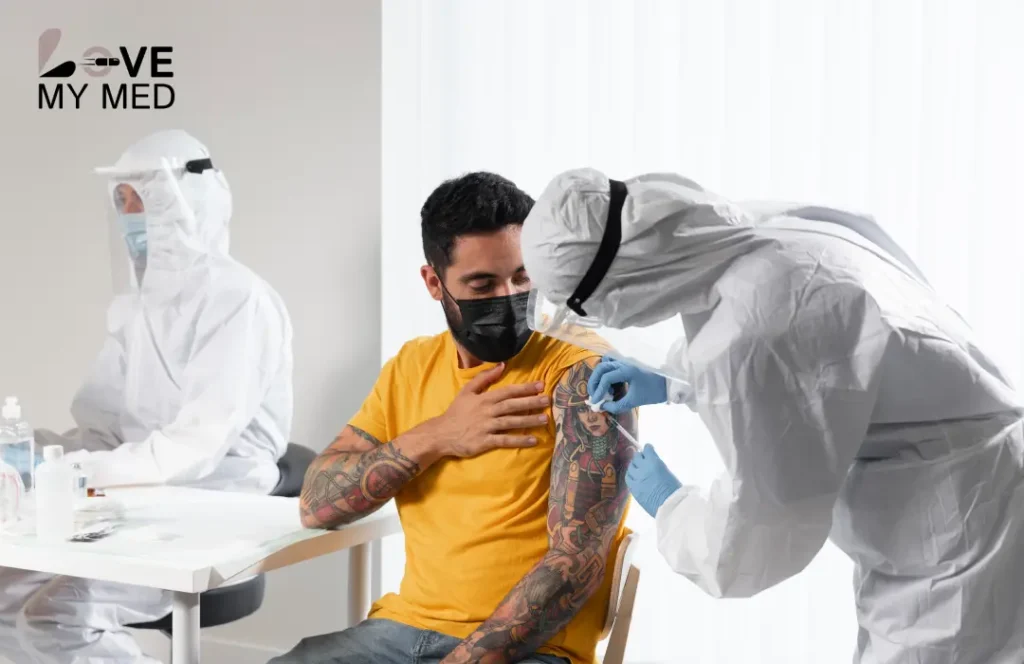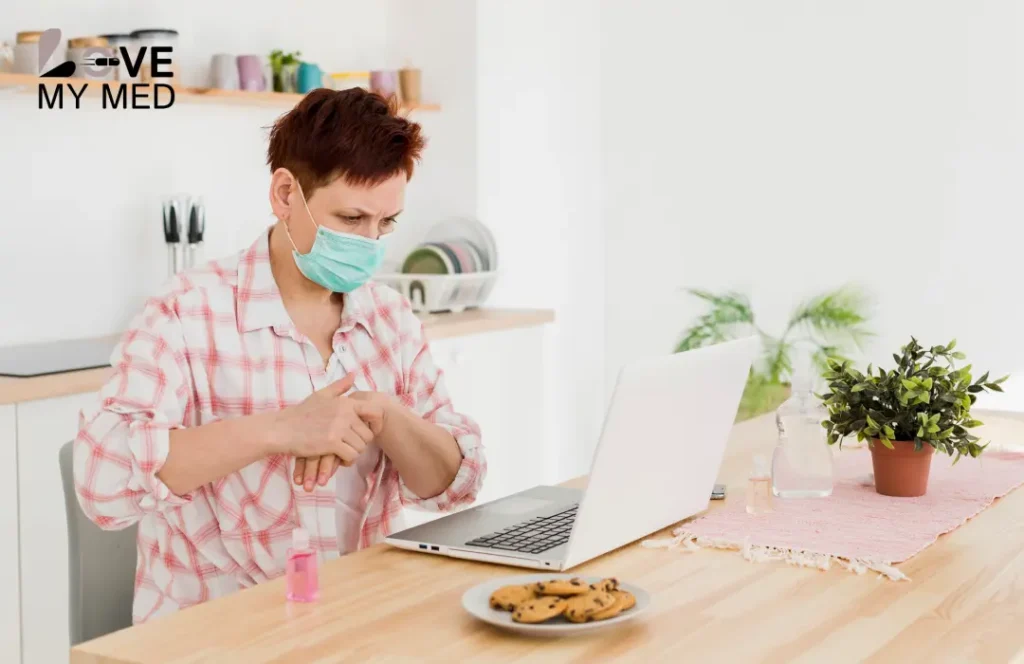Infections Caused By Parasites: How Do They Spread?
What is a parasitic infection?
A parasitic infection happens when tiny organisms called parasites get inside your body and live off you. Parasites can be worms, bugs, or tiny creatures you can’t see without a microscope. They use your body to grow and survive, which can make you sick.
These infections aren’t rare. Millions of people worldwide deal with them every year. Some are easy to treat, while others can stick around and cause long-term problems.
What are the types of parasitic infection?
There are three main types of parasitic infection:
- Protozoa: These are tiny, single-celled organisms. Examples include Giardia and Plasmodium (the parasite that causes malaria).
- Helminths: These are worms. Think roundworms, tapeworms, and flukes.
- Ectoparasites: These live on your skin. Fleas, lice, ticks, and mites are examples.
Each type acts differently in your body, and each needs a unique treatment.
What are the most common parasitic infections?
Some parasitic infections are more common than others. You might hear about these:
- Malaria: Caused by Plasmodium, spread by mosquitoes.
- Giardiasis: Often from drinking unsafe water.
- Amebiasis: Linked to poor sanitation.
- Toxoplasmosis: Often from handling cat litter or undercooked meat.
- Pinworm infections: Especially common in kids.
- Tapeworms and roundworms: Usually from undercooked meat or contaminated soil.
- Scabies and lice: Spread through close contact.
No matter where you live, these infections can happen, though some are more common in certain places.
Symptoms and Causes
What are the symptoms of parasitic infections?
The symptoms depend on which parasite you have, but here’s what many people experience:
- Stomach pain or cramps
- Diarrhea or constipation
- Unexplained weight loss
- Feeling tired all the time
- Itchy skin or rashes
- Fever
- Nausea or vomiting
- Trouble sleeping
Some people don’t notice anything at first. Others get sick quickly. If symptoms linger, it’s smart to talk to a doctor.
What is an Antiparasitic and How Does it Work?
Think of antiparasitics as your body’s bouncers; they kick out the parasites causing all the problems. These are medicines your doctor prescribes, and they’re targeted to zap specific types of parasites.
A really common antiparasitic is albendazole. You might see it as mebendazole, which just means different strengths. Albendazole is the brand name for metronidazole, and it’s used to treat all sorts of infections in your stomach, intestines, and sometimes even your skin. It gets rid of bugs like Giardia and amoebas by stopping them from growing and spreading.
Never guess which medicine you need; always let your doctor decide. They’ll pick the right dose and length of treatment for your exact infection.
Diagnosis and Tests
How are parasitic infections diagnosed?
Doctors use several ways to find out if you have a parasitic infection:
- Stool tests: A lab checks a sample of your poop for eggs, larvae, or the parasites themselves.
- Blood tests: These can spot certain parasites, like those causing malaria or toxoplasmosis.
- Imaging tests: Sometimes, doctors use scans to see if parasites have damaged your organs.
- Skin scrapings: For scabies or lice, a doctor may take a small bit of skin or hair to look under a microscope.
Early diagnosis makes treatment easier and more effective.
What are the symptoms of parasitic infection?
If you notice symptoms like stomach pain, diarrhea, itching, or a rash that won’t go away, see your doctor. If you’ve traveled recently, eaten undercooked meat, or had close contact with someone who has a parasitic infection, mention it. This helps your doctor figure out what tests you need.
Management and Treatment
How are parasitic infections treated?
Treatment depends on what kind of bug or worm is causing the trouble. Your doctor might give you:
- Tablets like albendazole or mebendazole: These are strong antiparasitic, especially for gut infections. They must be taken exactly as prescribed.
- Special creams or shampoos: These are for things like lice or scabies.
- Other antiparasitic medicines: Sometimes albendazole or mebendazole for worms.
Don’t try random home cures or take leftover medicine from a friend. The right treatment is the fastest way back to normal.
How do you get rid of parasites in your body?
To clear parasites from your body:
- Take all prescribed medicine as directed.
- Practice good hygiene, and wash your hands often.
- Clean bedding and clothes in hot water if dealing with lice or scabies.
- Avoid sharing personal items.
- Stay hydrated and rest while your body heals.
If symptoms come back, go back to your doctor.
Can parasitic infections be prevented?
Yes, many parasitic infections can be prevented with a few simple steps:
- Wash your hands with soap and water, especially after using the bathroom or eating.
- Drink clean, safe water.
- Cook the meat all the way through.
- Use insect repellent in areas with lots of mosquitoes.
- Wear shoes outdoors to avoid worms in the soil.
- Wash fruits and vegetables well.
- Avoid close contact with anyone who has lice, scabies, or similar infections.
Teaching kids these habits helps keep families healthy, too.
Final Thoughts
Parasitic infections might sound scary, but most are treatable and preventable. Paying attention to your body and practicing good hygiene can lower your risk. If you ever feel unwell and think a parasite might be to blame, don’t wait to talk to a doctor.
Your health matters. Share this guide with family or friends who might need it, and don’t hesitate to reach out for help if you spot any signs of a parasitic infection.
FAQs
Can you have a parasitic infection without symptoms?
Yes, some people carry parasites without noticing any problems. Regular checkups help catch silent infections.
Are all parasites harmful?
Most parasites that infect humans can cause illness, but some live in the body without causing harm.
What is the average time it takes to get rid of parasites?
It depends on the type. Some clear up in days with treatment; others may take longer.
Can pets spread parasitic infections to humans?
Yes, some parasites pass from pets to people. Washing hands after handling animals and keeping pets healthy lowers your risk.
Do you need to see a doctor for all parasitic infections?
Yes. Proper diagnosis and the right medicine are the best ways to recover and prevent spreading it to others.
Ready to protect your health? If you have questions or need more tips, connect with your healthcare provider or explore more trusted resources online. Stay safe and look after yourself!





